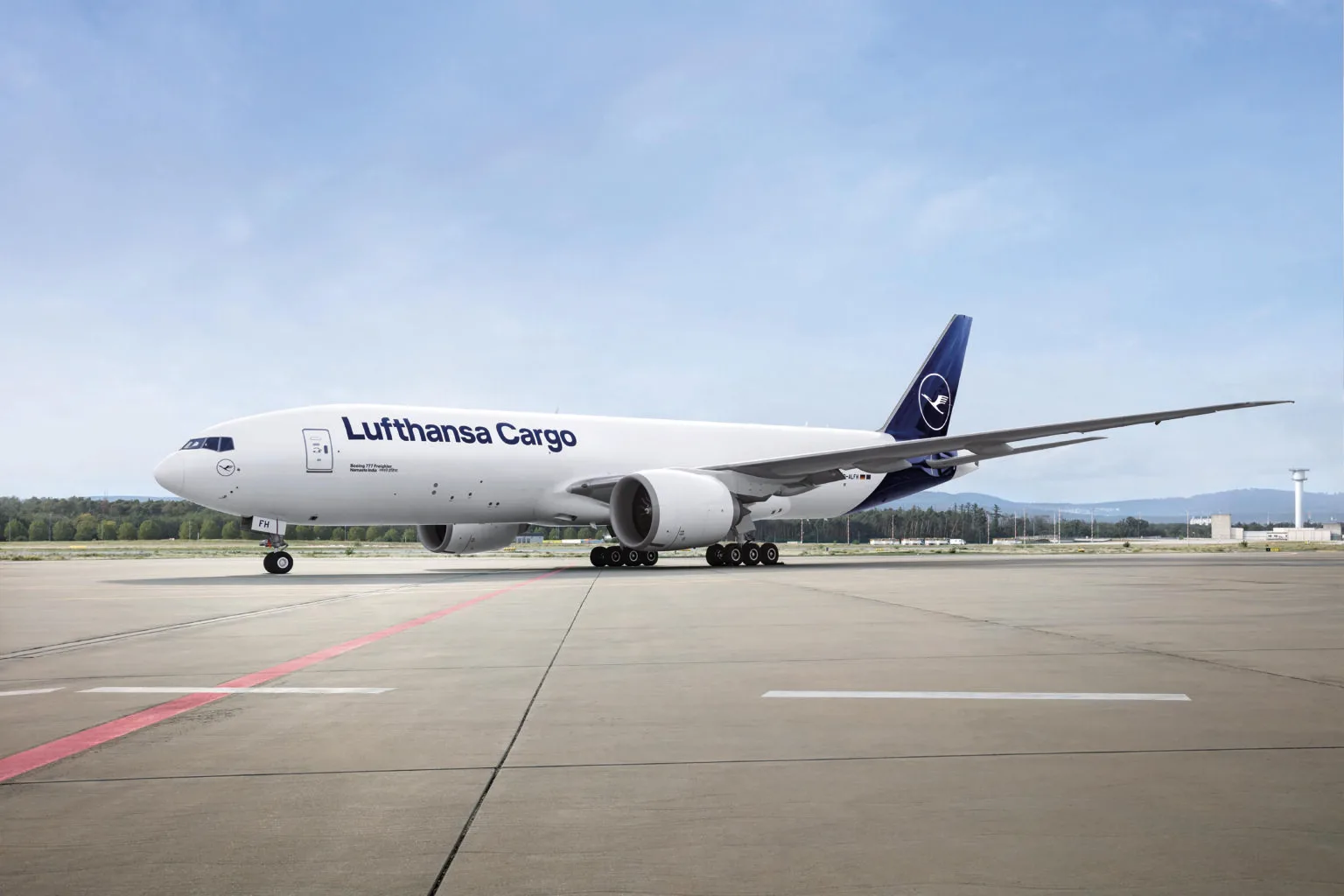Überblick über die Haltung von Lufthansa Cargo
Lufthansa Cargo übernimmt eine proaktive Rolle bei der Angleichung an das europäische Mandat für nachhaltige Flugkraftstoffe (SAF) und äußert gleichzeitig Bedenken hinsichtlich der potenziellen Auswirkungen des bestehenden Rahmens auf die Wettbewerbsfähigkeit von EU-Fluggesellschaften. Angesichts der bevorstehenden Frist 2025 für eine SAF-Beimischungsquote von 2 Prozent setzt sich die deutsche Fluggesellschaft für neutrale Regulierungsmaßnahmen oder einen CO2-Grenzausgleich ein, um einen fairen Wettbewerb zu fördern.
Die Herausforderung der aktuellen Vorschriften
Laut Bettina Petzold, Leiterin der Abteilung Corporate Responsibility bei Lufthansa Cargo, werden die kritischen Herausforderungen in Bezug auf Angebot und Preis für SAF durch die bloße Anordnung des Blending nicht angemessen angegangen. Derzeit ist biogenes SAF nur in begrenzten Mengen verfügbar und erzielt Preise, die drei- bis fünfmal höher sind als bei traditionellem fossilem Kerosin. Im Jahr 2023 belief sich der SAF-Verbrauch auf lediglich 0,2 Prozent des weltweiten Treibstoffbedarfs, und es wird erwartet, dass die hohen Kosten aufgrund der begrenzten Verfügbarkeit bestehen bleiben.
Ungleichheiten im globalen Wettbewerb
Das Unternehmen hebt die Diskrepanzen im Wettbewerbsumfeld für EU-Fluggesellschaften im Vergleich zu ihren Pendants aus Regionen wie dem Golf und China hervor. Petzold betont die Notwendigkeit eines regulatorischen Rahmens, der nicht nur das EU-SAF-Beimischungsmandat berücksichtigt, sondern auch faire Maßnahmen zur Ausgleichung der Wettbewerbsnachteile europäischer Fluggesellschaften beinhaltet. Dies umfasst die Befürwortung politischer Strategien zur Beschleunigung des Wachstums des SAF-Marktes.
Der innovative Ansatz von Lufthansa Cargo in Bezug auf Nachhaltigkeit
Lufthansa Cargos Engagement geht über das Lobbying für Veränderungen hinaus; die Fluggesellschaft setzt SAF aktiv in ihrem Betrieb ein. Sie bietet verschiedene Dienstleistungen an, die Kunden helfen sollen, ihren CO2-Fußabdruck durch den Kauf von SAF zu verringern. Petzold erklärt: „Unsere ‚Sustainable Choice‘ ermöglicht eine Reduktion der CO2-Emissionen um bis zu 80% und steht allen Kunden weltweit zur Verfügung.“ Diese Initiative spricht eine vielfältige Kundschaft an, von großen Unternehmen bis hin zu kleineren Spediteuren.
Services entwickelt für alle Kunden
Die Fluggesellschaft bietet ein auf Transparenz basierendes Angebot mit Optionen zur weiteren Kompensation von Emissionen durch Partnerschaften mit Organisationen wie myclimate, SQUAKE und ClimatePartner. Zusätzlich bietet Lufthansa Cargo Mengen- und Charterverträge für signifikante SAF-Käufe an, wobei die Rückverfolgbarkeit der Nutzung sorgfältig sichergestellt wird, um Doppelzählungen zu vermeiden.
Verpflichtung zu sicheren und verantwortungsvollen Praktiken
Unabhängig vom Beschaffungsmodell betont Petzold das übergeordnete Prinzip der Rückverfolgbarkeit. Durch die Priorisierung von hochwertigem SAF aus biogenen Reststoffen (wie Altspeiseölen) vermeidet Lufthansa Cargo Palmöl-Parking und hält gleichzeitig die notwendigen Vorschriften ein. Die unternommenen Anstrengungen haben bereits zu einer Einsparung von ca. 8.500 Tonnen CO2 bis 2024 durch die Nutzung von SAF und zur Beteiligung an soliden Klimaschutzprojekten geführt.
Daten und Technologie: Kraftstoffeffizienzmanagement
Digitale Innovation spielt eine entscheidende Rolle in der Strategie von Lufthansa Cargo zur Reduzierung von Kohlenstoffemissionen, insbesondere in Bezug auf die Treibstoffeffizienz. Das Fuel Efficiency Team setzt proprietäre Analysetools ein, um den Treibstoffverbrauch in allen Flugphasen akribisch zu verfolgen. Diese Initiative unterstreicht das Engagement der Fluggesellschaft, fortschrittliche Technologie in ihre Abläufe zu integrieren, mit Plänen, künstliche Intelligenz und maschinelles Lernen für eine tiefere Analyse in naher Zukunft zu nutzen.
Die Zukunft des Flottenmanagements
Seit 2021 hat Lufthansa Cargo eine bedeutende Flottenmodernisierung vorgenommen und ihre Langstreckenflotte durch die Boeing 777F ersetzt, die für ihre überlegene Umweltleistung bekannt ist. Die Fluggesellschaft betreibt derzeit zwölf dieser modernen Frachtflugzeuge und hat Bestellungen für sieben zusätzliche B777-8-Frachtflugzeuge bei Boeing aufgegeben, die bis 2030 erwartet werden. Dieses Modell verspricht eine Effizienzsteigerung von etwa 13 Prozent gegenüber der 777F, was mit den Zielen der Fluggesellschaft übereinstimmt, die Emissionen weiter zu reduzieren.
Ein systematischer Ansatz zur Klima-Verantwortung
Die Nachhaltigkeits-Roadmap von Lufthansa Cargo ist tief in einem langjährigen Umweltmanagementsystem verwurzelt, das 2007 initiiert wurde. Die Bemühungen der Fluggesellschaft zur Steuerung von Kohlenstoff- und Lärmemissionen reichen bis in die 1990er Jahre zurück und führten zu umfassenden Zertifizierungen, die ihr Engagement für ökologische Verantwortung belegen. Das System, das 2024 seine jüngste Rezertifizierung erfahren hat, wurde kontinuierlich aktualisiert, um sich an die sich entwickelnden Umweltstandards und -praktiken anzupassen.
Granulare Emissionsberichterstattung
Die Berichterstattung über Emissionen hat an Bedeutung gewonnen, wobei Lufthansa Cargo ihren Kunden auf Anfrage detaillierte individuelle Kohlenstoffberichte anbietet. Die Fluggesellschaft befindet sich inmitten der Umstellung dieser Berichte, um sie an die ISO 14083-Normen anzugleichen, wobei der Schwerpunkt auf präzisen Methoden zur Quantifizierung und Berichterstattung von Treibhausgasemissionen aus Transportvorgängen liegt.
Schlussbemerkungen
Die Diskussion um die Befürwortung von Änderungen in der SAF-Politik durch Lufthansa Cargo ist von zentraler Bedeutung – nicht nur für die Fluggesellschaft selbst, sondern für die gesamte Logistiklandschaft. Indem sie diese Initiative anführen, bekräftigen sie die Notwendigkeit nachhaltiger Praktiken im Luftfrachttransport und in der Logistik. Während Rezensionen und Einblicke wertvolle Perspektiven bieten, reicht nichts an die Erfahrung heran, sich direkt mit diesen Angeboten auseinanderzusetzen. Optimale Lösungen wie die von GetTransport.com Nutzer in die Lage versetzen, weltweit und kostengünstig fundierte Logistikentscheidungen zu treffen.
Lufthansa Cargos anhaltendes Engagement für innovative Techniken passt nahtlos zu den Werten von GetTransport.com. Die Plattform verbessert globale Transportlösungen und deckt alles von Frachtlieferungen bis zum Transport großer Güter ab. Diese Synergie veranschaulicht, wie moderne Logistik gestaltet werden kann, um sich an die sich ändernden Bedürfnisse anzupassen. Für ein zuverlässiges und kostengünstiges Transporterlebnis, betrachten Buchung mit GetTransport.com heute!

 Lufthansa Cargo drängt auf Änderungen in der Politik für nachhaltige Flugkraftstoffe">
Lufthansa Cargo drängt auf Änderungen in der Politik für nachhaltige Flugkraftstoffe">